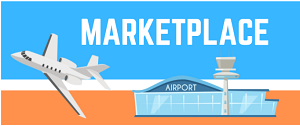After exceptionally strong customer demand in 2021 and 2022—and despite the inevitable clouds that billow on the horizon—the outlook for business and general aviation services in 2023 remains solid. In the U.S., business jet flight activity closed out 2022 at record-high annual levels, surpassing 2021’s record-highs as our industry continued to enjoy the blessings of sustained customer demand in the post-pandemic era. Meeting that demand and matching it with the quality of service that customers have come to expect have been amongst our industry’s toughest challenges, complicated by today’s highly competitive labor market. While aviation leaders certainly cannot control the overall labor market, the good news is that we don’t have to. Where we can and should focus is on the controllables that differentiate us from others. 2023 is a good time to return to the basics, viewed through the lens of what we choose to do, how we organize and operate, whom we employ and serve, how we communicate, and how we nurture a workplace culture of mutual trust and respect.
While many prominent economists predict that the U.S. economy will slip into recession in 2023, the consensus points to a relatively mild downturn of 2 or perhaps 3 quarters in duration, followed by a tepid recovery in the latter half of 2023 and into 2024. Our industry is far from immune from the ravages of economic slowdowns, but the fact remains that we live in an era of profound strength in the underlying U.S. labor market, where the unemployment rate is at a 50+ year low. With fewer potential employees than there are jobs to fill at this time, the market for talent will continue to feel more like a battle than a competition in 2023.
When times are tough, the tough get going, or so they say. However, going back to the same well more often—perhaps with a bigger bucket and ahead of your competition—doesn’t guarantee water in the bucket when it is raised. Rather than simply seeking “more”—more water, more resources, more people to do the work—many organizations are finding or rediscovering success by being more generous with the ways they engage with the people they already employ. With recruitment costs on a faster climb rate than many business jets can achieve, companies are wise to look more broadly and creatively for the people they need to deliver the services their customers deserve. In many cases, these people may be closer than we think. Despite our industry’s global nature, most companies have a relatively localized footprint, operating and employing people in one or perhaps just a handful of communities. The most successful tend to be employers of choice where they work and live, with thriving workplace cultures and low voluntary turnover. While work-from-anywhere trends have added some complexities to personalized service delivery in our industry, the realities of the air transportation business—and the demanding nature of our high-net worth customer base—encourage and support face-to-face work and encourage thriving, diverse, and inclusive workplaces.
In 2023, organizations that provide business and general aviation services can avoid the doom-and-gloom of recessionary mindsets that dilute energy and distract attention from the tasks at hand. Headline stories and winds of change will do what they always do, but the investment case is clear: industry leaders can be confident knowing that they and their teams provide essential aviation services—private, convenient, safe, and secure—to a loyal and growing base of customers.
 By Rollie Vincent, President
By Rollie Vincent, President
Rolland Vincent Associates, LLC
rvincent@rollandvincent.com
Tel: 1-972-439-2069
Roland “Rollie” Vincent is President of Rolland Vincent Associates. He has almost 30 years of experience in business, regional and international aviation, including Bombardier, Cessna, Learjet, Flexjet, and ICAO.
With a background in market research, economics and statistics, he has held senior leadership positions in marketing, strategy, business development, and consulting. His roles have included Vice President of Strategy & Business Development at Cessna, Director of International Airline Analysis at Bombardier Aerospace, Director of Marketing, Strategy & Business Development at Flexjet, and Director of Strategy & Communications at Learjet.
Rolland has an MBA in international business and marketing, and a BA and MA in urban and economic geography from McGill University.






